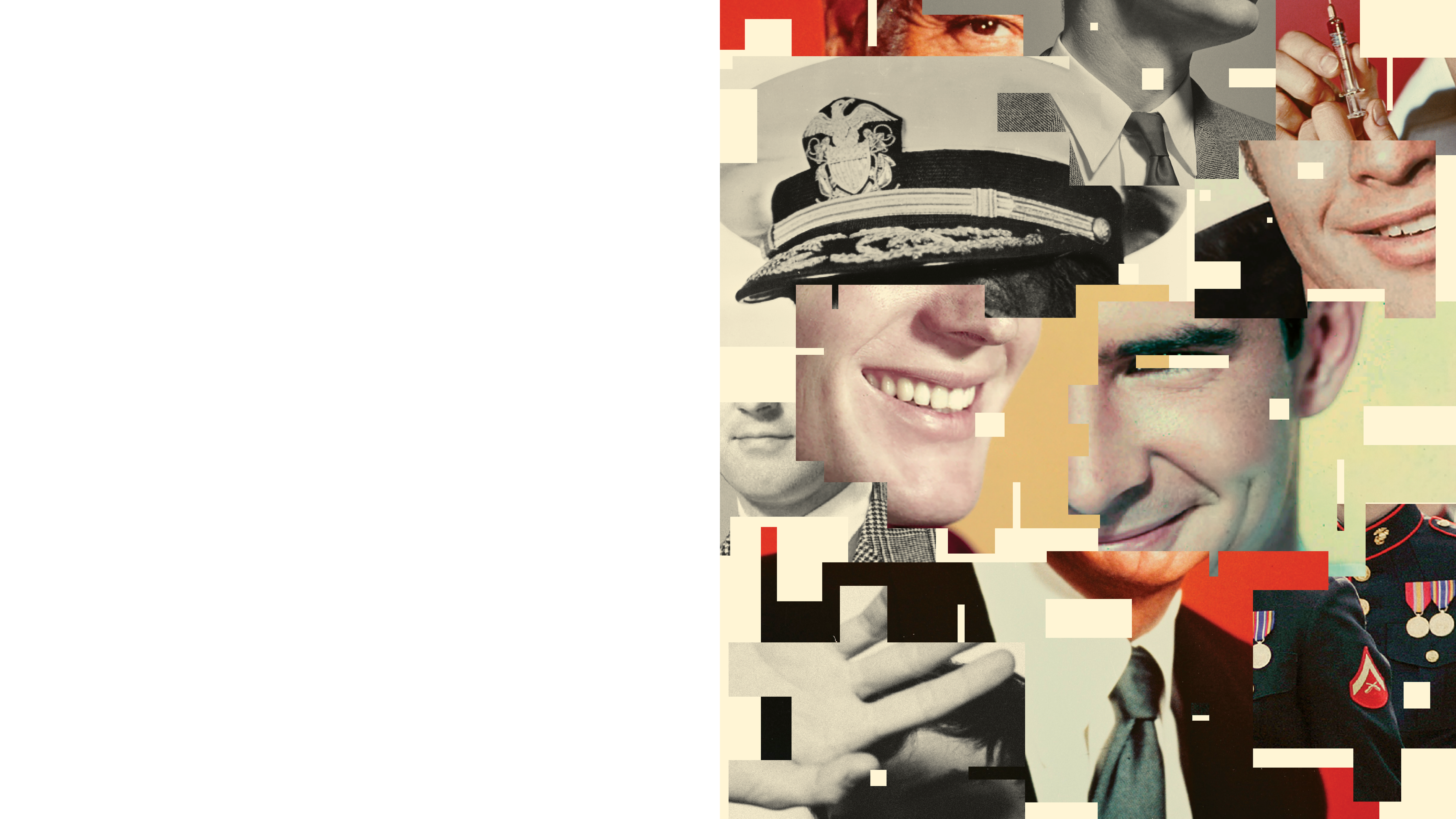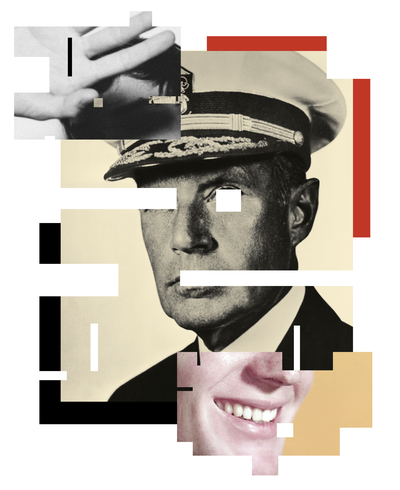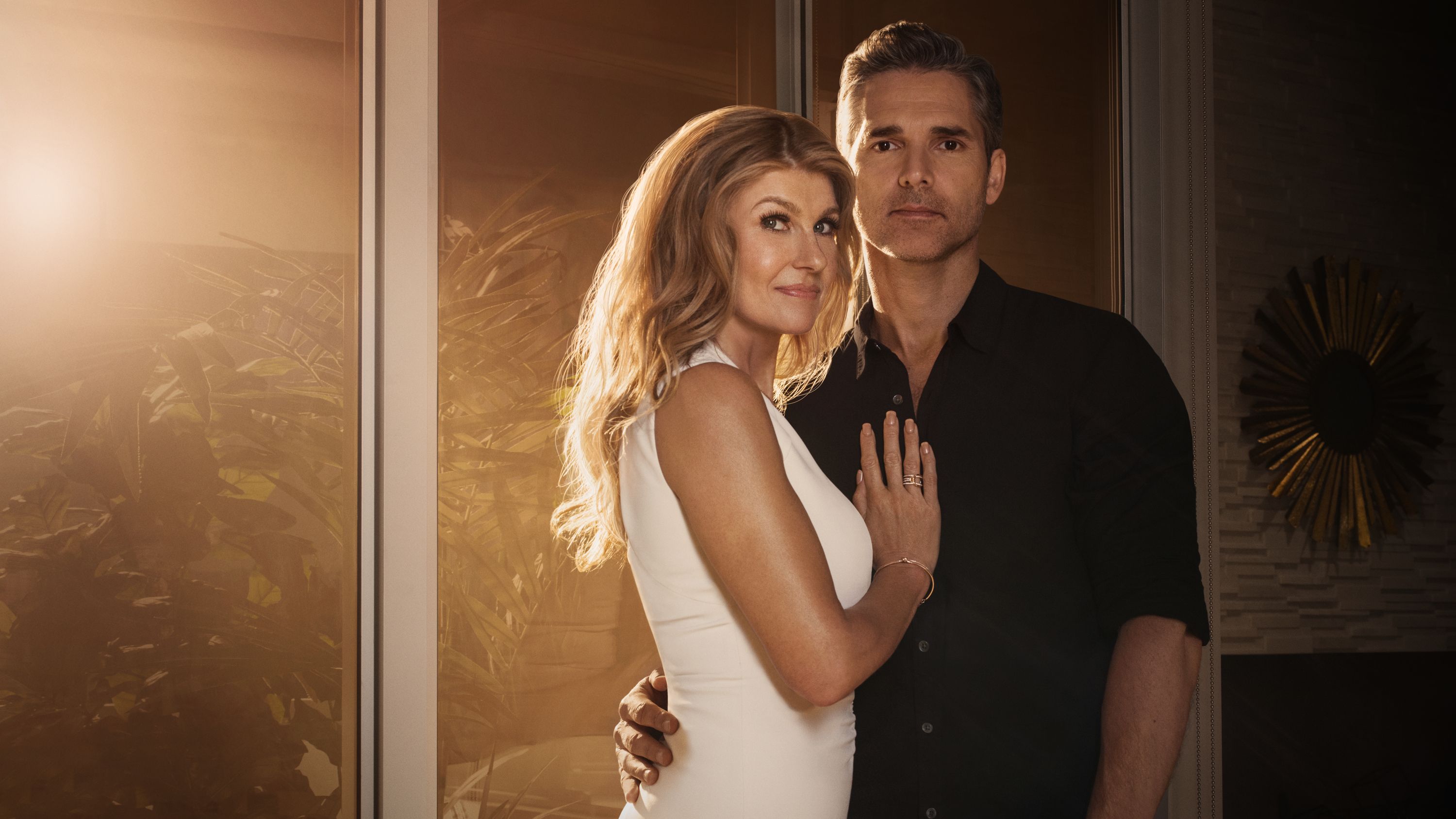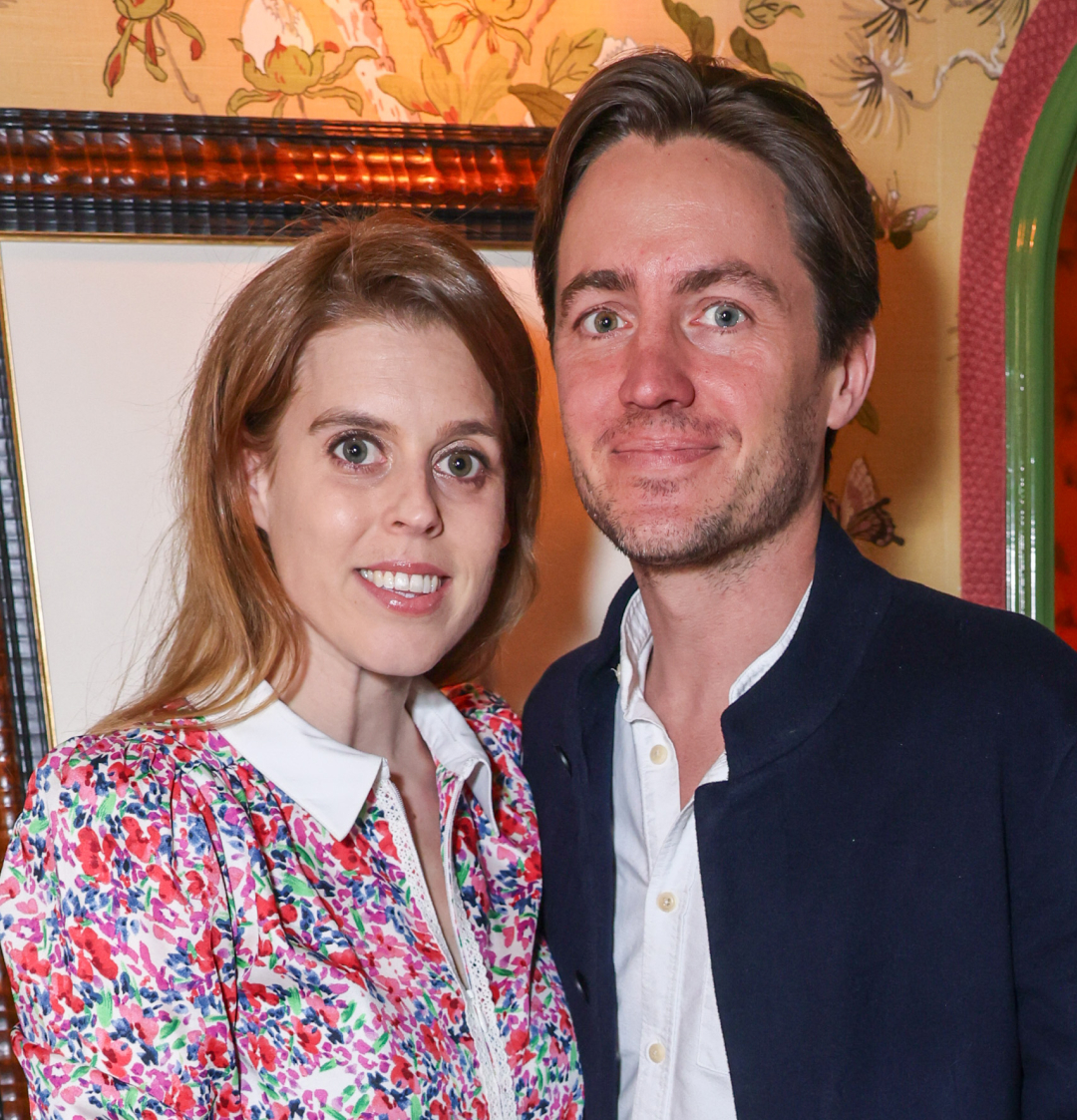I Almost Married a Con Man
After a lifetime of Mr. Wrongs, Abby Ellin thought she had found The One—dashing, attentive, noble. But throughout their courtship then engagement, his behavior and stories of his past made her question who he truly was. The answer was one she never saw coming.

My ex-fiancé helped orchestrate the raid on Osama bin Laden. He received a Purple Heart for his military service and a medal of honor from Golda Meir. He thwarted a bioterrorism attack in New York City and saved the grandson of one of the world’s wealthiest men from an attempted kidnapping. None of it was public. He didn’t write a book about his escapades or sell his story to Hollywood. His goal wasn’t to become rich and famous but to keep his children—and all of America—safe from the “bad guys.” “I’m not going to sit by while people are in danger,” he’d often say as he packed his bags for a secret mission.
It was wonderfully noble, except for one minor detail: None of it was true.
Let’s rewind to early 2006, when I was writing an article and needed to cite a medical expert. Someone recommended a doctor with a posh West Coast practice. His quote made it into the story, but the article was put on indefinite hold. Nearly a year later, when the piece was finally slated to run, I called him to fact-check.
He had quit his fancy practice and moved to Florida to work at a naval hospital. He told me he had served in the military years earlier and had reenlisted in order to open a hospital in Iraq for kids with cancer. He was a lieutenant commander. Soon, he would start a job at the Pentagon. What a coincidence! I was planning on moving to the capital to attend graduate school at Johns Hopkins School of Advanced International Studies. I wanted to write about global human-rights issues, and this hospital project was a story worth pursuing. “Keep me posted,” I said. And so he did, emailing every few months with snippets of information. In December 2009, the emails began picking up in frequency. By late January, they had blossomed into daily, almost hourly, telephone calls.
We spoke deeply, honestly. The Commander, as I took to calling him, said he was a former Navy SEAL and had divorced a few years earlier. His two school-aged children lived on the West Coast with his ex-wife. It hadn’t been an amicable split, but he spoke to his kids often and visited frequently. I’d just emerged from a brief and disappointing dalliance with a guy I’d known at summer camp when we were kids. I’d been trying so hard to find a good man, I hadn’t even cared that he was a Wall Street Republican who played fantasy football.
“I’m not going to learn anything or grow spiritually from another failed romance,” I told the Commander. “I’ve paid my dues. It’s time for something good.”
“I understand,” he said. “I’ve suffered enough too.”
Stay In The Know
Get exclusive access to fashion and beauty trends, hot-off-the-press celebrity news, and more.
When I asked why I’d never read any press on it, the answer was prompt: “Secret mission.”
On our first date, in early February 2010, he took me to the Four Seasons Restaurant in Manhattan. Over seared tuna and pinot noir, he confessed that the great trauma of his life was not becoming a brain surgeon, his true calling. He’d wanted to treat glioblastoma, one of the deadliest types of brain tumors, but he hadn’t received any surgical fellowships. My grandmother had died of the same cancer. How weird. Then he told me that the previous summer, he’d been the medical director at Guantánamo, treating high-level terrorists. He lowered his voice. At Gitmo, a “country club for bad guys,” one of his patients was a Very Important Terrorist. He gave me a rundown of the VIT’s medical history: kidney trouble, diabetes, enlarged heart.
Bin Laden? That made no sense to me. A secret that big would never remain that way.
“The president doesn’t know,” he said.
That seemed even more absurd. I told him that was a stupid thing to tell a journalist.
“It’s not verifiable,” he said. “I’d deny it. It would be my word against yours.”
When I pressed further, he backpedaled: “Maybe it wasn’t bin Laden. All I know is what they told me.”
“You would know what he looked like! He’s like six foot six!”
“They all look alike,” he said. His gaze never wavered.
Every so often, he still did undercover work, black ops, in conjunction with the CIA. He had a vault brimming with medals for operations that “did not officially exist.” “I’ll show you one day,” he said. That was how he had met his ex-wife 20 years earlier: when she was being held hostage in Iran and he swooped in like Superman to pluck her out of captivity. “In 1990?” I said. “Why was she being held hostage?”

He told me a long, involved story about her dissident Iranian uncle and the government. When I asked why I’d never read any press on it, the answer was prompt: “Secret mission.”
“So, you put your life on the line and you get no public accolades?” He was like no one I’d ever known.
“I want to have an impact,” he said. “As long as my kids are in danger, I’ll do what I have to do to make the world safe for them.”
The acid in my gut started churning a bit. Danger from what exactly? If this had been a story, I’d have fact-checked the hell out of it. But he was right; there was no way to verify anything since it was all sub-rosa. And maybe there was something to it. Someone has to do these jobs in real life, don’t they? Isn’t that what we’ve learned from Homeland and Zero Dark Thirty? Maybe the doctor was nuts. But maybe he wasn’t. His stories were so ludicrous, they had to be true; there’s a whole galaxy of unknown unknowns.
After that night, we spoke three, four, five times a day. He did not pull the Great American Disappearing Act, a trick perfected by many a New York man involving telephones, emails, texts, and a sudden inability to use them. He called when he said he would and sent generous gifts: an enormous bouquet of flowers, a replica of a Jacqueline Kennedy Onassis emerald-and-diamond necklace, “a rehearsal” for when he could buy me the real thing. I was falling for him. It’s easy to adore someone who adores you. We saw each other every 10 days or so, sharing romantic weekends in D.C., Maine, and Manhattan. He always bought first-class plane tickets and put us up at five-star hotels. He sent love letters and adoring notes. He was good and decent and exciting and noble.
The beauty of it was that he wasn’t the sort of man I usually went for, which is to say he didn’t know a Burning Man from a burning bush, nor did he care. He (unironically) liked the music of the 1970s Muzak band Bread. He was up at 5 a.m. As far as I’m concerned, nothing good happens before 10. I worried about our different nocturnal habits. But compromise is key, right? The person you end up with is rarely the person you thought you’d end up with. The person you have the best sex with is not necessarily the person you should marry. Not that marriage was ever a goal of mine. I’d been passionately in love once and “pre-engaged” twice, and both times a ball of rubber bands had traveled up my stomach and into my throat whenever the subject of marriage came up. But I did want a playmate, a lover, someone with whom to get into benign mischief. Someone I dug who dug me too: mutual digment.
Meeting men was never a problem. But I found it hard to meet men I liked who liked me back. And I’d had debilitating, aching bouts of loneliness, a hole in my chest so vast that neither food nor booze nor sex nor work could plug it. When you’ve been single long enough and dated everyone from alcoholic chefs to heteroquestionable set designers, you become flexible. My parents were thrilled with my new beau, but my mother was a little confused about his job status. “What doctor leaves a lucrative private practice?” she said. “I wish you could call his ex-wife, but of course you can’t.”
I fumed. “Why do you have to question everything?”
But secretly, I wondered too. He dutifully called from Haiti, Iraq, and Afghanistan, where he was doing things he would tell me about “when there’s a secure line.” My friends thought it amusing: the insatiably curious journalist involved with someone who couldn’t tell her what exactly he did for work. They knew it drove me bananas; I’ve been known to flip to the last page of a book just to see how it ends. By the time the Commander entered my life, I’d been actively trying to combat my trust issues. I would throw my cynicism to the side and open my heart. So I filed away the Gitmo thing, the hidden medals, and the supersecret missions. Not completely away, but in a synaptic cabinet beneath my amygdala. He was a grown-up whose life philosophy matched mine in so many ways. I wanted to trust him. I wanted this relationship to work.
Meeting men was never a problem. But I found it hard to meet men I liked who liked me back.
When the Commander proposed five months into the relationship, handing me a tiny round solitaire—“a token; I’ll do better when I have more money”—I said yes. We planned a November wedding. Maybe it was rushed, but I was 42 and he was 58. My parents met at a singles week in the Catskills and married within three months. Three kids and 53 years later, they’re still together.
In late August 2010, we moved into the Watergate, ground zero for deception. We landed in one of the only rental properties amid the million-dollar condos, a 900-square-foot one-bedroom for $1,500 a month, which the Navy was paying for, he said. We hadn’t seen each other for a while. He’d been in Afghanistan earlier in the summer and returned home with a case of asthma so incapacitating, he could barely walk across the street. He didn’t want me to witness that, so we were apart for almost five weeks.
On my first night there, the Commander set up a little mise-en-scène: a vase of irises and chilled white wine on a metal table, along with a gushy card. We toasted our life. Our future.
Later, in bed, I briefed him on different wedding venues, only to be met with silence. Finally, he mumbled, “I don’t think we should get married in November. Let’s wait.” I felt like a deflated balloon. And yet I wasn’t surprised. “You were the one who wanted a rushed wedding!” I said. “What changed?”
Apparently his son was having a delayed response to his parents’ divorce. He started weeping, violently, his shoulders heaving like an old Italian widow’s. “I’m so overwhelmed,” he said. What to do? Be supportive. Comfort him. Tell him I loved him and that we were a team. So I did all that. But my insides turned to water.
The next morning, he left a series of Post-its on the bathroom mirror, in the refrigerator, and on the stove, a scavenger hunt of sticky notes. He apologized for being such a disaster, telling me how lucky he was, how excited he was to make our union official. I brushed my hurt aside. About a week later, I borrowed his laptop to type an email while mine was being charged. A note he’d drafted for his ex-wife before going to Afghanistan a few months earlier popped up. “I’m sorry for all I put you through,” he wrote, adding that if he survived the mission he would do his damnedest to “make things right” between them. It felt like a Brillo Pad had scraped against my insides, leaving them bloody and raw. I called him at his Pentagon office. “Do you want to get back together with your wife?” I demanded.
He was livid that I’d read the note. “You don’t know the context! You leap to conclusions without knowing the facts.” He told me that the military required everyone to write letters before deploying; he was simply following orders. He’d really written it to “flash” before his suffering son. He wanted to show him that he hadn’t abandoned him, that he was willing to try once again with his ex-wife even though she’d dumped him. He had an answer and an excuse for everything.
I became increasingly paranoid, questioning my own sanity. Gaslights flickered like a semaphore.
I felt bad for reading it, but the whole thing gnawed at me. If he wasn’t lying to me, then he was lying to his son. The enormity of my situation hit me: I was stuck. I’d been the first person to point a finger at women who stayed with bad men—men who lied, men who cheated, men who drank, men who hit. I’d condemned women who stayed in abusive relationships. Why didn’t she leave? I’d wonder. If I were in that situation, I thought smugly, I’d walk away so fast, they’d think I’d been a hallucination. Granted, my situation was minor compared to that of people whose lives were embroiled with children, finances, real estate. But I had nowhere to go. My New York apartment was rented, and I knew no one else in Washington. I called my parents, sobbing. They offered to give me money to move out, but I didn’t want that. It wasn’t their responsibility. The Commander came home that night proffering a bouquet of roses and an apology.
I forgave him. Sort of.
We settled into a groove: Every morning, he starched his uniform and shined his shoes and went to the Pentagon. His name and bio were on the website in big bold letters; I met some of the people he worked with. But he would never take me to work events or even the office. He always came up with a reason not to: Security was too tight or the event was open only to employees. I became increasingly paranoid, questioning my own sanity. Gaslights flickered like a semaphore. I longed for some good old-fashioned infidelity. At least that I could make sense of. But I didn’t understand what I didn’t understand. The questions I had about him weren’t verifiable. There was no way to tell what was true and what wasn’t. I worried that I was a terrible person, suspicious and unworthy of love. And worse than not trusting him, I no longer trusted myself.

Over Christmas, I overheard him and his son talking behind a closed door.
“What’s up with the ring on Abby’s finger?” his son asked. “Is that from you, Dad?”
I pressed my ear to the door and couldn’t make out the Commander’s response. But I could imagine him denying it. Later he told me his son “forgot” about our engagement, that he had a lot on his mind and he was going through a tough time. But I didn’t believe that was really the problem. “You’re making a fool out of me,” I said, “and I’m not sure why.”
“What do you want from me?” he screamed.
“Maybe some honesty?”
I took the train back to New York that night. Once I got to the city, I felt like someone had pulled a cork from my chest. Finally, I could breathe. But then the disorientation set in. Of course his son had been upset! He was a teenager! He was dealing with so much transition! I decided to take a few days and then return to D.C. to spend New Year’s 2011 with him.
But that was not to be. He couldn’t get together because his expertise was needed to deter a “bioterrorism attack” in New York. While thousands of people were tossing confetti in Times Square, the Commander was on a secret mission around the corner, protecting the city from dirty bombs. I went out to dinner with friends. It was no different from being single.
I wish I could say that I never looked back, but after I ended it, I spent the next year and a half alternating between relief and self-flagellation. Had I blown the best thing that ever happened to me? Maybe I was too quick to judge. These feelings ate at me until one blustery March morning in 2012 when I got a call from Special Agent Dan Ryan, with the Naval Criminal Investigative Service (NCIS). A doctor who had worked for the federal government had been forging prescriptions for hydrocodone, among other drugs (including Cialis and Viagra). I—along with his octogenarian aunt, his former father-in-law, and colleagues at the Pentagon—was among the names he used to get the goods. Did I know this man?
I automatically kicked into journalist mode, calling his coworkers, one of his ex-wives (plural; I found out he had two), his new girlfriend. All were shocked—devastated—that the man they’d trusted had used them in such a way. His second ex-wife told me she’d never set foot in Iran; they’d met in medical school. While he was in the Navy and did work at the Pentagon, he was never a SEAL or in the CIA. I also learned that the Commander had been engaged to another woman in Florida while we were dating and later engaged.
“You’re lucky,” friends said when he was safely ensconced in prison, where he was sentenced to two years, the mandatory minimum. “You dodged a bullet.”
That’s like saying, “You’re lucky you’re only a paraplegic after the bus slammed into you.” If you were truly lucky, you would never have been hit by the bus, never have been on the same street as the bus, never been in the same goddamn city. Others wondered why I hadn’t gotten out sooner. “Weren’t there red flags?” they asked. “Did you really think he was a war hero?” The subtext was there in flashing neon letters: How could a professional interlocutor, someone with decades of experience separating fact from fiction, get taken for such a ride? How to explain that of course there were red flags, enough to decorate the United Nations, but the wind was blowing them in 12 different directions?
“Well, I didn’t stick around,” I pointed out. The Commander and I were together only a year. And I was most certainly not one of those vulnerable women on Dr. Phil, draining my life savings for some guy I met online. Why was everyone blaming me?
Ah, but here’s the rub: I blamed me too. Why hadn’t I walked out at the first sign of craziness—which, if I were being honest with myself, I’d noticed the very first night at the Four Seasons? Oh, the usual reasons. Loneliness. Desire. Compromise. Love. Because he had a Big Life and seemed more upstanding than any man I’d ever known. No one really gets it unless they’ve been duped themselves. They don’t understand what it’s like to believe in someone and be utterly, completely mistaken. To discover that the person closest to you is actively working against you. One of the main reasons to be in a relationship is to have someone who’s got your back. That was a large part of the Commander’s appeal: He was on my team. Except, of course, he wasn’t.
This excerpt originally appeared in the February 2019 issue of Marie Claire. Read the whole story in Ellin's book, Duped: Double Lives, False Identities, and the Con Man I Almost Married, available for pre-order on Amazon (out January 15).
RELATED STORY

-
 Netflix's 'North of North' Transports Viewers to the Arctic Circle—Meet the Cast of Inuit Indigenous Actors
Netflix's 'North of North' Transports Viewers to the Arctic Circle—Meet the Cast of Inuit Indigenous ActorsThe new comedy follows a modern Inuk woman determined to transform her life.
By Quinci LeGardye
-
 Princess Beatrice's Husband Pays a Rare Tribute to These Royal Family Members on Instagram
Princess Beatrice's Husband Pays a Rare Tribute to These Royal Family Members on InstagramEdoardo Mapelli Mozzi shared some behind-the-scenes snaps from the F1 Grand Prix in Bahrain.
By Kristin Contino
-
 Allow Kathy Bates to Convince You to Grow Out Your Grays
Allow Kathy Bates to Convince You to Grow Out Your GraysOne look at her new style and you'll be canceling your root touch-up pronto.
By Ariel Baker
-
 30 Female-Friendly Porn Websites for Any Mood
30 Female-Friendly Porn Websites for Any MoodFeatures All the best websites, right this way.
By Kayleigh Roberts
-
 The 82 Best Cheap Date Ideas for Couples on a Budget
The 82 Best Cheap Date Ideas for Couples on a Budget"Love don't cost a thing." —J.Lo
By The Editors
-
 Diary of a Non-Monogamist
Diary of a Non-MonogamistRachel Krantz, author of the new book 'Open,' shares the ups and downs of her journey into the world of open relationships.
By Abigail Pesta
-
 COVID Forced My Polyamorous Marriage to Become Monogamous
COVID Forced My Polyamorous Marriage to Become MonogamousFor Melanie LaForce, pandemic-induced social distancing guidelines meant she could no longer see men outside of her marriage. But monogamy didn't just change her relationship with her husband—it changed her relationship with herself.
By Melanie LaForce
-
 COVID Uncoupling
COVID UncouplingHow the pandemic has mutated our most personal disunions.
By Gretchen Voss
-
 16 At-Home Date Ideas When You're Stuck Indoors
16 At-Home Date Ideas When You're Stuck IndoorsFeatures Staying in doesn't have to be boring.
By Katherine J. Igoe
-
 Long Distance Relationship Gift Ideas for Couples Who've Made It This Far
Long Distance Relationship Gift Ideas for Couples Who've Made It This FarAlexa, play "A Thousand Miles."
By Jaimie Potters
-
 15 Couples on How 2020 Rocked Their Relationship
15 Couples on How 2020 Rocked Their RelationshipFeatures Couples confessed to Marie Claire how this year's many multi-stressors tested the limits of their love.
By Sherry Amatenstein, LCSW